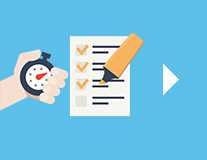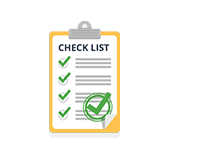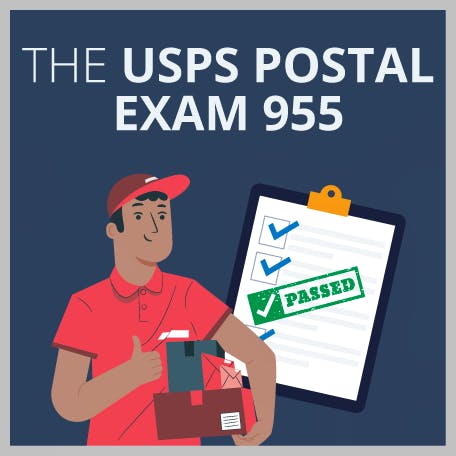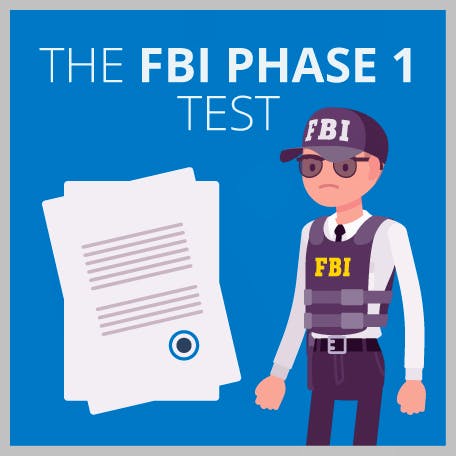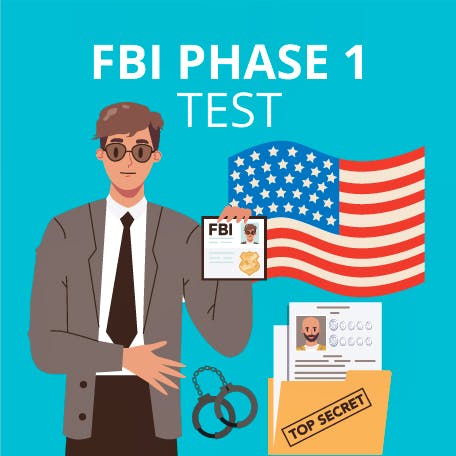A Guide to the CritiCall 911 Dispatch Test: Examples & Tips
Updated June 19, 2024
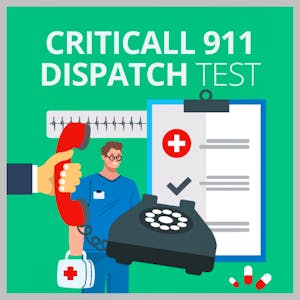
- What Is the CritiCall 911 Dispatcher Test?
- What Is the Format of the CritiCall Test?
empty
empty
empty
- 911 Dispatcher Test Practice Questions
empty
empty
empty
empty
- How to Pass the CritiCall 911 Test
- How Is the CritiCall Test Scored?
empty
empty
empty
empty
- Top Tips for Taking the CritiCall 911 Dispatch Test
empty
empty
empty
empty
- Frequently Asked Questions
- Final Thoughts

If you are looking for a career working with the emergency services, then becoming a 911 call handler and dispatcher might be just the role for you.
If you can handle working under pressure, helping the public and are able to deal with difficult and uncomfortable situations with a calm head, then you might have what it takes to be the first port of call in an emergency.
Becoming a 911 call handler and dispatcher means you will need to have some very specific skills and abilities, and as part of the recruitment process, you will have the opportunity to demonstrate your suitability by taking the CritiCall 911 dispatch test.
Used throughout the US for recruiting people for 911 roles, the CritiCall test does not assess your previous experience or your knowledge of the role.
Instead, it is designed to assess candidates on the inherent aptitudes that are needed to be successful in the role.
This article will discuss what the CritiCall test is assessing, the types of questions that you are likely to face and what the recruiters will be looking for.
There will be some example questions, as well as details about what mark you will need to achieve to pass the test.
Finally, there are some CritiCall test prep tips to help you prepare for the assessment and what to think about on the day.
What Is the CritiCall 911 Dispatcher Test?
The CritiCall 911 dispatch test is an essential part of the recruitment process for emergency call handlers and dispatchers.
It is essential because it puts applicants under pressure – much like they would be if they get the job – and looks at different essential skills and abilities for the role.
The assessment is built from different modules, and there are up to 23 modules that can form part of the assessment.
You will not know what modules your test will cover; the agency and role you have applied for will determine what types of questions you will answer.
The CritiCall 911 dispatch test can take anywhere between one and three hours to complete, depending on your typing speed. Usually, it takes about two hours.
Candidates who are required to take the test will be invited to a test center and complete the assessment on the provided computers in a simulated work environment.
Some of the skills that are assessed by the CritiCall test include:
- Multi-tasking, decision making and prioritization
- Data entry
- Map reading
- Reading, writing, spelling and basic math
- Memory and recall
- Performance under pressure, including the ability to remain calm
Other dispatcher tests include the POST dispatcher test and the Police Communications Technician Test (also known as the NYPD 911 Operator Exam).
What Is the Format of the CritiCall Test?
Although the number of questions and the type of content will vary depending on the position you have applied for, most CritiCall tests follow a similar format.
The assessment is broken into three distinct sections, containing the various modules.
Before each module there will be a practice question so that you know what to expect and how you need to format your answer.
Attention to Detail
Performing the daily tasks of a call handler and dispatcher means having a good eye for detail and the ability to quickly spot and correct errors if they occur.
Getting the right information to the units that have been dispatched means being able to understand what callers are saying and being able to accurately transfer that into reports.
Below are some of the core question types used to assess a candidate based on their attention to detail.
Data Entry and Multi-Tasking
This section of questions uses both written and audio prompts as part of a simulated dispatch system.
It requires candidates to input information like names, addresses, dates and phone numbers into the right places. The data might come from a report or from a simulated 911 call.
Cross-Referencing
Dispatchers will have to use various sources of information to accurately create reports and send units to where they need to go
Therefore, the ability to use things like address books and be able to locate the required information is a good way to assess cross-referencing skills.
In this part of the assessment, candidates will have to find information from one source and input it into another source.
Character Comparison
This is like a traditional error checking aptitude test.
The candidate is provided with two tables containing seemingly identical data, and they are required to find the differences between the tables.
Good attention to detail skills includes being able to spot errors, mistakes and omissions in written information so that accuracy is guaranteed.
Dispatcher Skills
These are the skills that are particular to the role of the dispatcher.
To be able to complete this part of the assessment properly the candidate is given a list of decision rules to follow.
These rules dictate which emergency service should be used for each type of call; it is worth remembering that for some incidents there may need to be more than one type of service unit sent.
Taking free dispatcher skills tests will help you improve your knowledge in these areas.
Map Reading
Although the mapping capabilities of the computer system are usually reliable, there will be times when a dispatcher will have to be able to read a map to direct units to the scene of an incident.
Aside from a good working knowledge of the geography of their dispatch area, 911 operators need to demonstrate that they can use a map to choose the fastest and safest routes.
Memory and Recall
With calls providing a lot of information in a short space of time, 911 operators need to be able to use their short-term memory to recall various details of an incident.
In this section, candidates are given information either in writing or through audio and need to be able to recall it on the next screen.
In some cases, they might be asked questions about the data they were just given.
Decision Making
This is the section of the assessment that needs strict adherence to the decision rules mentioned above.
911 dispatchers have to decide whether an incident needs to be attended by the police, fire department, emergency medical services and/or public utilities.
Some of the questions will require written answers, while others will need the answers to be spoken into a microphone.
Prioritization
Similar to the decision-making section, this set of questions needs the candidate to be able to consider the urgency of different situations.
They will be presented with a number of incidents and should rank them in order of severity.
Probability
911 calls can often be difficult to hear, contain conflicting information or the caller might not have all the details the dispatcher needs to make an effective decision.
In this section of the assessment, the candidate has to choose the most likely answer when faced with garbled or incomplete information.
Basic Skills
In the basic skills section, the inherent aptitudes of a candidate in things like reading, writing and math are assessed.
Call Summarization
An important skill in dispatchers is the ability to find the most important parts of a call to focus on.
This call summarization section requires a candidate to listen to simulated 911 calls and provide a summary of what they heard.
In this part, both speed and accuracy are assessed.
Spelling and Sentence Clarity
Dispatchers need to be able to convey information accurately in writing, which means they need good skills in spelling and being able to choose a simple and clear sentence structure when compiling information.
In this assessment, the candidate is assessed on their ability to write coherent sentences and spell workplace-related words.
Math
Calculating distances and keeping track of the number of units dispatched means that a 911 operator needs a good grip of math, at least at a basic level.
In this part of the assessment, the candidate is required to answer some word-based math problems using basic operations and knowledge.
Reading Comprehension
There are a lot of written materials that need to be understood by a 911 dispatcher, such as manuals and training information.
In this section, the candidate is evaluated on their ability to read and understand written information quickly and accurately.
Below are two scripts of letters and symbols you must memorize and then repeat after five minutes:
@&GRK$+KS
!*HFVB%@KF
A female caller is agitated and reporting an accident. She insists they are at the corner of Highway Street and Fletcher Street. A male voice keeps interrupting and insisting they are at Highway Street and Chester Street.
You can’t find either a Fletcher or a Chester Street but there is a Foster Street nearby.
Which address do you send the emergency services to?
Dispatcher A had three calls in the past 10 minutes. He dispatched a total of five vehicles: two EMS, one fire truck and two police cars.
He had to reroute two of the vehicles due to construction work in the area.
He now adds an additional two calls with two police cars.
The two EMS are on their way to the hospital and have gone a quarter of their five miles journey.
a) How many vehicles did the dispatcher dispatch?
b) How much further do the EMS vehicles need to travel?
A distressed woman has called to say that she has been involved in a car crash and there is a person trapped in one of the vehicles. There is debris on the road, there seems to be a burst water pipe and one of the cars is blocking the carriageway. The woman is unsure whether any of the people involved are injured.
What units should you send?
How to Pass the CritiCall 911 Test
Step 1. Get Familiar With the Test Format
Part of the difficulty of taking a test like the CritiCall 911 dispatch test is its unfamiliarity.
So, if you can get familiar with the test, the way it will be structured and how you will need to answer the questions, you will feel more comfortable on the day.
Step 2. Take Free CritiCall Practice Tests Online
CritiCall provides 911 operator tests for the typing, error-spotting and spelling parts of the assessment.
For further practice, you can find unofficial free CritiCall practice tests that are designed to ape the real thing effectively.
If you need to polish certain skills, you can find practice 911 dispatcher typing tests and 911 dispatcher listening tests online too.
Using these free 911 dispatcher practice tests will help you get used to the assessment structure as well as give you an indication of the types of questions you might be asked and their difficulty.
The results you get from your 911 dispatcher practice tests can help you plan your studying effectively as they will highlight any areas where you might benefit from revision and generally improve your self-awareness.
Step 3. Cover Basic Skills
In the CritiCall dispatcher test, you will be tested for several different skills in various ways.
Therefore, one of the most important things you can do to improve your chances is to revisit these key abilities and practice them.
Concentrate on:
- Keyboarding and touch typing, especially regarding speed and accuracy
- Data entry
- Reading and writing skills
- High school level math
- Map reading
How Is the CritiCall Test Scored?
The CritiCall test is scored both as a whole and as individual sections.
You will need to achieve a pass in all sections to be considered for a 911 dispatcher position.
The exact score that you will need to move forward with your application will depend on the agency and the position that you have applied for.
But the better your score in each section and overall, the better your chances are.
What Are the Passing Scores?
Each section has a different minimum score that needs to be achieved in order to pass.
- Data Entry and multi-tasking – 60 keystrokes per minute for data entry, 28 keystrokes per minute for the audio section and 35 words per minute when keyboarding
- Cross-referencing – 56–70%
- Character comparison – 70%
- Prioritization – 70%
- Memory recall – 61–70%
- Map reading – 62–70%
- Call summarization – 57–70%
- Reading comprehension – 57–60%
- Spelling and sentence clarity – 68–70%
- Math – 70%
As you can see, most sections need a score of at least 70% to pass, which is quite high. Doing lots of 911 dispatcher test prep will increase your chances of getting a high score.
How Are the Scores Presented?
The agency or the recruitment company that you have applied through will receive a report of your performance.
This will include your overall score, the individual marks and minimum scores for each module, and your typing speed in either keystrokes per minute or keystrokes per hour.
As a candidate, you will probably only be told if you have passed or failed the assessment.
The agency may give you a copy of the report – it never hurts to ask.
What Is a Good Score?
A good score on the CritiCall assessment is a passing score, and you should aim for at least 70% in every module to ensure success.
It is worth bearing in mind that different agencies have different requirements for different roles.
Can The Candidate Fail the Test?
If you do not achieve the score that you need to pass, you will fail and your application for the role will not be taken further.
If you do fail, in some cases you will be allowed to reapply for the role at a later date and you will be given the opportunity to retake the CritiCall assessment then.
Top Tips for Taking the CritiCall 911 Dispatch Test
Prepare Your Body and Mind
As you get closer to the assessment, make sure that you are giving your brain the fuel that it needs to be able to work effectively.
Ensure that you are well hydrated, get enough sleep and choose to eat healthy meals, to have your brain working at its best.
Arrive Early
As the assessment will take place at a test center, you want to make sure that you arrive in plenty of time so that you aren’t worried about getting stuck in traffic or dealing with delays on public transport.
Being early will give you a chance to relax a little and give yourself a pep talk, or at least the opportunity to take some deep breaths.
Read the Questions Carefully
Before each module, there will be a practice question.
Use this to help you understand what you need to do to answer the question properly.
Reading the questions carefully will stop you from rushing and potentially wasting valuable time and marks.
Don’t Get Stuck on a Difficult Question
If a question is too complicated and you can’t find the answer, just move on.
Spending too much time on a tough question could mean that you don’t spend enough time on the questions you find easier, and you could lose marks, especially when you are being assessed on your speed as well as your accuracy.
Frequently Asked Questions
The CritiCall 911 dispatch test is an assessment that is used to evaluate a candidate on the essential skills, abilities and aptitudes that are needed to become a successful 911 call handler or dispatcher.
It assesses a candidate on their ability to work under pressure, remain calm and deal effectively with stressful situations.
There are practice tests available online for the CritiCall 911 dispatch test at JobTestPrep, which can help in your preparation for the assessment.
The publishers of the offer a preparation guide and practice tests for typing, error-spotting and spelling portions.
You can also prepare by researching online by reading articles like this one.
The CritiCall test assesses the following skills and abilities in a candidate:
- Multi-tasking
- Keeping calm
- Data entry
- Decision making
- Prioritization
- Basic math, writing and reading skills
- Map reading
- Attention to detail
- Memory
The number of questions in the CritiCall 911 dispatch test will depend on the role you have applied for.
There are 23 different modules that a candidate might be tested on.
The assessment can take anything from one to three hours to complete, but most candidates get it done in about two hours.
If you meet the minimum criteria to apply for a 911 operator role, then you will meet the requirements to take the CritiCall 911 dispatch test.
You will only be invited to complete the assessment if you are in the process of applying for a relevant role.
Aside from this article, there are several different resources that you can use to get more information about taking the CritiCall 911 dispatch test.
You can visit JobTestPrep for the ultimate preparation package.
The CritiCall 911 dispatch test is designed to put candidates under similar pressure to that of the emergency dispatch workplace, to see how well they cope with different aspects of the role.
The skills evaluated in the assessment don’t require any previous experience or job knowledge – they are based on natural aptitudes that will help a 911 operator to be successful.
The content of the questions themselves are not necessarily difficult, but the environment and pressure make them harder.
Depending on the role that you have applied for, there could be up to 23 different modules that you could be assessed on as part of the CritiCall 911 dispatch test.
Not all modules will be on all tests.
Most tests cover the below sections:
- Attention to detail – Data entry, multi-tasking, character comparison, cross-referencing
- Dispatcher skills – Map reading, decision making, prioritization, memory recall, probability
- Basic skills – Math, reading comprehension, call summarization, spelling and sentence clarity
There is no official practice version of the entire CritiCall 911 dispatch test.
The CritiCall website has useful resources for practicing the various skills that will be tested, as well as some specific practice resources for keyboarding and data entry.
You can find excellent resources that include practice tests on JobTestPrep.
The required score to pass the CritiCall 911 dispatch test depends on the role you have applied for and the agency that has set the assessment.
In most cases, you will need to score at least 70%, plus certain typing speeds, to continue in your application.
It is worth remembering that you need to succeed in all sections of the assessment to pass the whole test too.
The results of your CritiCall 911 dispatcher test will be provided to you according to the timescale of the recruitment process.
While the recruitment team will receive a full report of your performance, you may only be told whether you have passed or failed.
No, the CritiCall test can only be taken at a test center, as arranged by the recruitment team as part of the application process for 911 call handler and dispatcher roles.
Only if you reapply for the same or similar role.
If you fail the CritiCall 911 dispatch test, your application for the current role will become void.
However, in most cases, you would be allowed to reapply for the role at a later date and be able to retake the assessment.
Final Thoughts
The CritiCall 911 dispatch test is an essential part of the recruitment process for 911 operators because it evaluates the inherent skills and abilities of a candidate to ensure that they have what it takes to be successful in the role.
911 dispatchers need a whole range of different aptitudes, from reading maps to multi-tasking and dealing with situations that might be scary or upsetting, all with a calm demeanor and great understanding.
The 911 dispatch role is undeniably important in the response to incidents, crime, accidents and other emergencies, so good performance in the assessment will demonstrate that you have the skills, aptitudes and abilities that are needed to be an asset to the team.








